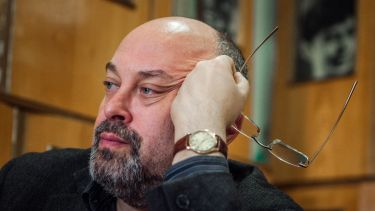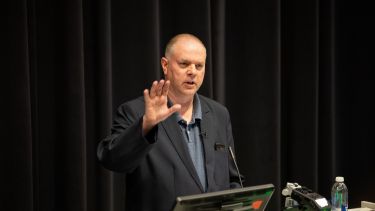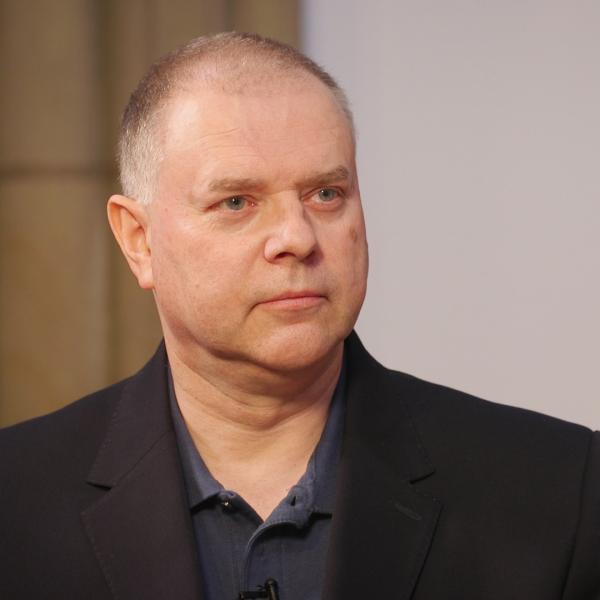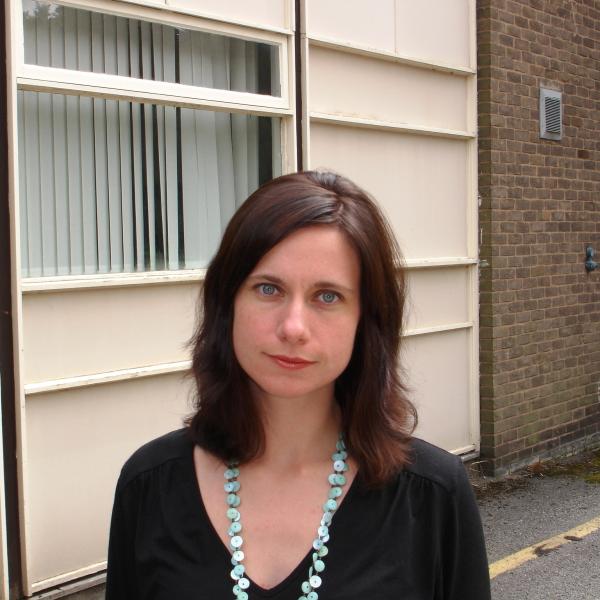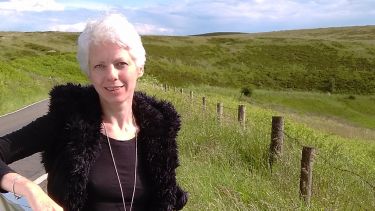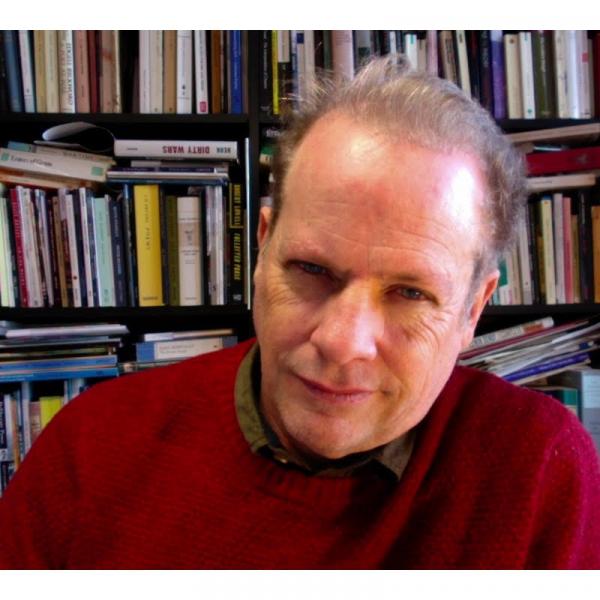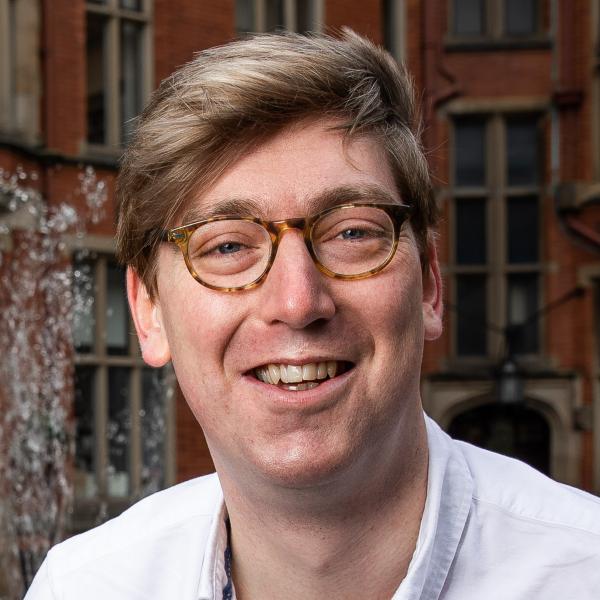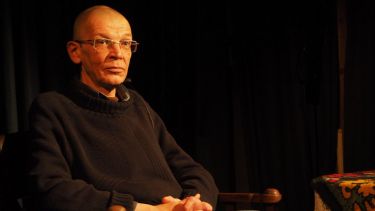People
Find out about the Prokhorov Centre's Directors, Permanent Members and Prokhorov Fellows.
Directors
- Professor Evgeny Dobrenko
-
Evgeny Dobrenko is Professor and Head of Russian and Slavonic Studies at the University of Sheffield.
His research interests lie in Soviet and post-Soviet literature and culture, Socialist Realism, Soviet national literatures, Russian and Soviet film, and critical theory.
He is the author, editor, and co-editor of 20 books – most recently, A History of Russian Literary Theory and Criticism and The Cambridge Companion to Twentieth-Century Russian Literature – and over 300 articles and essays, which have been translated into ten languages.
Before joining the University of Sheffield, Evgeny Dobrenko worked in the Soviet Union (Odessa State University, Moscow State University, the Russian State University for the Humanities, Moscow), the USA (Duke, Stanford, Amherst College, University of California), and in the UK at the University of Nottingham.
He has held a Stanford Humanities Centre Fellowship, a Karl Loewenstein Fellowship in Political Science and Jurisprudence at Amherst College, and a Kennan Institute of the Woodrow Wilson International Centre Fellowship.
He was a Fellow at the New York University International Centre for Advanced Studies and at the Centre for Research in the Arts, Social Sciences and Humanities at Cambridge. In 2012, he was awarded the Efim Etkind Prize for the best book about Russian culture.
- Professor Henk de Berg
-
Henk de Berg is Professor of German, with specialist expertise in the European history of ideas, and Head of Germanic Studies at the University of Sheffield.
A graduate of the University of Leiden in the Netherlands, he came to Sheffield in 1996, after having taught comparative literature at Leiden for several years.
He has published three monographs, including an introduction to Freud’s theory and its use in literary and cultural studies (described by Peter Gay as “as good an introductory text as one can possibly hope for”), which received a CHOICE Outstanding Academic Title Award and has been translated into three European languages as well as Chinese.
Among his seven co-edited books on literary and cultural theory is Modern German Thought from Kant to Habermas: An Annotated German-Language Reader (edited with Duncan Large). It includes ca. 100 pages of editorial introductions and annotations, while the editors’ general introduction has been described by Joachim Whaley as “probably the best short account of the development of modern German philosophy”.
Fluent in French as well as German, Henk de Berg has worked extensively on the Russian-born French philosopher Alexandre Kojève as well as on the Bulgarian-born French thinker Tzvetan Todorov.
Henk de Berg is currently writing a book comparing-and-contrasting today’s trend towards populism and “illiberal democracy” (especially Donald Trump and Trumpism) with the rise of Hitler in the 1920s and 1930s. The focus is on issues such as ethno-nationalism, conspiracism and conspiracy theories, and establishment-bashing, as well as on questions of political rhetoric.
Permanent members
- Professor Neil Bermel
-
Neil Bermel is Professor of Russian and Slavonic Studies at the University of Sheffield.
His interests focus on the language and linguistic culture of the Czech Republic, a nation with historic and cultural ties to Austria and Germany, but whose language is part of the Slavonic group that includes Russian, Slovak, and Polish.
He has examined the linguistic and cultural anxieties around orthographic reform and is currently working on the representation of languages as media for communication and as objects at Czech heritage sites, an outcome of the “English in Europe Project” at the universities of Sheffield, Copenhagen, Zaragoza, and Charles University in Prague.
He has published a number of translations of Czech literature, including two novels by Pavel Kohout as well as Helga’s Diary: A Young Girl’s Account of Life in a Concentration Camp (2013; with extensive critical apparatus).
A native of New York, Neil Bermel holds a BA from Yale and an MA and PhD from Berkeley.
He is the author of Linguistic Authority, Language Ideology, and Metaphor: The Czech Spelling Wars (2007), which won the Best Book in Slavic Linguistics award in 2008 and the George Blazyca Prize for Best Book in East European Studies in 2009.
His other publications include Register Variation and Language Standards in Czech (2000), Context and the Lexicon in the Development of Russian Aspect (1997), and the co-edited volume: Attitudes towards English in Europe (2015).
-
Dr Miriam Dobson
-
Miriam Dobson is a Senior Lecturer at the University of Sheffield, specialising in modern Russian history.
She graduated in Russian and French from the University of Cambridge before gaining MA and PhD degrees from the School of Slavonic and East European Studies at University College London.
Her first monograph, Khrushchev’s Cold Summer: Gulag Returnees, Crime, and the Fate of Reform after Stalin (Cornell UP, 2009), won the 2010 Wayne S. Vucinich Book Prize and has also been published in Russian.
Her other publications include a Russian-language book containing documents and analyses on women in the evangelical communities of the post-war USSR from the 1940s to the 1980s (with Nadezhda Beliakova) and the co-edited volume Reading Primary Sources (with Benjamin Ziemann; Routledge, second edition 2020).
Miriam Dobson was the principal investigator of the AHRC-funded project ‘Protestants behind the Iron Curtain: Religious Belief, Identity, and Narrative in Russia and Ukraine since 1945’ and has published several articles based on this research.
She has written for various blogs, and for the London Review of Books.
- Dr Joshua Forstenzer
-
Joshua Forstenzer is Lecturer in Philosophy and Co-Director of the Centre for Engaged Philosophy.
Before that he was Faculty Fellow in the Social Sciences and the Vice-Chancellor's Fellow for the Public Benefit of Higher Education at Sheffield, as well as a Democracy Visiting Fellow in the Kennedy School of Government at Harvard, and a Visiting Fellow at the Jonathan M. Tisch College of Civic Life at Tufts.
He was also a founding-member and President of Philosophy in the City and the President of the Students’ Union of the University of Sheffield.
His Deweyan Experimentalism and the Problem of Method in Political Philosophy (Routledge, 2019) brings Marxist, Hegelian, and classical Greek philosophy into dialogue with John Dewey’s pragmatist accounts of philosophy and democracy.
Joshua Forstenzer's teaching is driven by an engaged pedagogic outlook and has been recognised with an Early-Career Senate Teaching Award and an Outstanding Teaching Award from students. He holds BA, MA, and PhD degrees from the University of Sheffield and is a bilingual speaker of French and English.
- Dr Natalia Jonsson-Skradol
-
Natalia Jonsson-Skradol specialises in the study of totalitarian ideologies (primarily Stalinism and National Socialism) and their expressions in political rhetoric, literature, and the arts.
She came to Sheffield in 2009 as the recipient of a four-year British Academy Fellowship. Before and after that, she studied and worked in Israel, Germany, and Austria. In 2013-2017, she was a research associate collaborating with Evgeny Dobrenko on the project Literary Pax Sovietica: National Revival and Cultural Unification in Post-War Eastern Europe.
She is the co-editor of Socialist Realism in Central and Eastern European Literatures (2018) and the co-author of a forthcoming monograph on Stalinist humour (provisionally entitled State Laughter: Genres of the Comic under Stalin).
A native speaker of Russian, Natalia Jonsson-Skradol is also fluent in English, Hebrew, and German, and she has a solid working knowledge of French and Spanish.
- Dr Ben Lewis
-
Ben Lewis is a Wolfson-funded PhD candidate and postgraduate tutor in German at the University of Sheffield.
He specialises in German political thought between 1871 and 1945, with a particular interest in socialism.
He studied German at Sheffield and Bonn and after graduating with a first-class honours degree from Sheffield worked for 6 years as a political organiser, journalist, and translator. He then embarked on an MA at the same university, which he completed in 2015.
His PhD research, under the supervision of Henk de Berg, focusses on the politics of the German intellectual Oswald Spengler (1880–1936).
He also takes a keen interest in the theory of history; his translation of On the Road to Global Labour History, a festschrift for the doyen of global labour history, Marcel van der Linden, was published in 2017.
Ben Lewis has edited and translated three volumes of texts by European socialist thinkers: Clara Zetkin: Letters and Writings (2015; with Mike Jones), Karl Kautsky on Colonialism (2013; with Mike Macnair), and Zinoviev and Martov: Head to Head in Halle (2011; with Lars T. Lih). His book on the pioneering Czech-Austrian Marxist Karl Kautsky (1854-1938) is forthcoming from Brill as Karl Kautsky on Democracy and Republicanism.
- Professor Adam Piette
-
Adam Piette is Professor of Modern Literature and Head of the School of English at the University of Sheffield.
He came to Sheffield in 2005, after a career at the universities of Lausanne and Glasgow.
A specialist in war studies, contemporary poetry, Cold War cultures, and European modernism, he is the author of Remembering and the Sound of Words: Mallarmé, Proust, Joyce, Beckett (1996), Imagination at War: British Fiction and Poetry 1939-1945 (1995), and The Literary Cold War, 1945 to Vietnam (2005).
He edited the special issue of Translation and Literature on “Modernism and Translation”, The Salt Companion to Peter Robinson with Katy Price (2007) and The Edinburgh Companion to Twentieth-Century British and American War Literature with Mark Rawlinson (2012). He is also the co-editor of the international contemporary poetry journal Blackbox Manifold.
-
Professor Robert Stern
-
Robert Stern is a Professor in the Department of Philosophy at the University of Sheffield.
He came to Sheffield in 1989, having been first a graduate and then a research fellow at St John’s College, Cambridge.
His main interests in the history of philosophy have been in nineteenth-century post-Kantian German philosophy, especially Hegel; and the twentieth-century Danish philosopher and theologian K. E. Løgstrup. He is starting a new project on Martin Luther seen from a philosophical perspective. His interests in contemporary philosophy are in epistemology, metaphysics, ethics, and political philosophy.
He has authored five monographs and two collections of his papers – Hegelian Metaphysics (Oxford UP, 2009) and Kantian Ethics (Oxford UP, 2015). He has edited several collections of essays, most recently Transcendental Arguments in Moral Theory (with Jens Brune and Micha H. Werner; de Gruyter, 2017).
He has received research funding from the AHRC, Leverhulme, and the Templeton Foundation. Robert Stern was Head of Department from 2004 to 2008 and is currently Chair of the Philosophy subpanel for REF 2021. He was elected a Fellow of the British Academy in 2019.
- Dr Seán Williams
-
Seán Williams is a Senior Lecturer in German and European Cultural History at the University of Sheffield.
He has BA (Congratulatory First), MSt, and DPhil degrees from Oxford and has held research positions at the University of California at Berkeley and the Hegel-Archiv of the University of Bochum.
Before coming to Sheffield in 2015, he taught German and comparative literature at the University of Bern in Switzerland.
His Pretexts for Writing (Bucknell UP, 2019) is concerned with print culture around 1800, and according to the Modern Language Review “announces the arrival of an important new scholarly voice in Germanistik”. His current book project looks at cultural history since the eighteenth century through the prism of the figure of the hairdresser.
He has edited special editions of German Life and Letters (on German literary anthologies 1700-1850), Oxford German Studies (on post-war literature and institutions), and a comparative section of Forum for Modern Languages Studies (on hotels and spas).
Seán Williams publishes in English and in German and is a regular contributor to radio (in both the UK and abroad), and his research has also appeared on television. He is a BBC New Generation Thinker.
Prokhorov Fellows
The Prokhorov Fellowship scheme, which pre-dates the establishment of the Prokhorov Centre by some years, enables prominent Russian scholars to visit the University and the Centre for a period of 3 to 6 months as research fellows.
- Dr Igor Loshchilov
-
Academic year 2020-21
Igor Loshchilov is a Principal Research Fellow at the Institute of Philology of the Siberian Branch of the Russian Academy of Science and a Lecturer at Novosibirsk State Pedagogical University.
His academic interests are the history and poetics of twentieth-century Russian literature, especially the literary avant-garde, such as the Futurists and the OBERIU. The main focus of his research has been the poet Nikolay Zabolotsky (1903-58), one of the founders of the OBERIU.
Among his publications is an edition of Zabolotsky’s first collection of poems, Stolbtsy (Columns, 2016; orig. 1929), which he edited in collaboration with the poet’s son, Nikita Zabolotsky.
In addition, Igor Loshchilov has worked on literature and the press in Siberia and the Far East during the first third of the twentieth century. He is the editor-in-chief of the journal Studies in Theory of Literary Plot and Narratology.
- Kirill Anisimov
-
Academic year 2019-20
Kirill Anisimov is Professor and Head of the Department of Journalism and Literary Criticism at Siberian Federal University (Krasnoyarsk).
He is the author of two monographs, Problems of Poetics in Nineteenth- to Early Twentieth-Century Siberian Literature: The Features of Emergence and Evolution of the Regional Literary Tradition (Tomsk, 2005), which is dedicated to the key figures of the Siberian regionalists' literary movement, and "Grammar of Love": Text, Context, Sense (Krasnoyarsk, 2015), which reconstructs Ivan Bunin’s identity as a thinker and social actor.
Kirill Anisimov is currently working on the history of the ballad genre.
-
Konstantin Kaminskij
-
Academic year 2018-19
Konstantin Kaminskij's research interests are literary and cultural theory, social history, and the history of science as well as media theory (with a focus on post-Soviet media).
He is the author of Der Elektrifizierungsroman Andrej Platonovs: Versuch einer Rekonstruktion (2016; forthcoming in Russian 2019) and the co-editor of Andrej Platonov: Frühe Schriften zur Proletarisierung (2018, with Roman Widder), Resignification of Borders: Eurasianism and the Russian World (2019, with Nina Frieß and Jurij Murašov), and Despoten dichten: Sprachkunst und Gewalt (2011, with Albrecht Koschorke), which has been translated into Russian and English.
Konstantin Kaminskij is the founder of the Central Asia and Caucasus School for Ecological Education, an independent institute which creates cross-disciplinary programmes in education for sustainable development, combining physical and economic geography, biology, agriculture, environmental sciences, and cultural studies.
He holds MA and PhD degrees from the University of Konstanz und is currently a Postdoctoral Fellow at the Humboldt University in Berlin.
- Elena Trubina
-
Academic year 2018-19
Elena Trubina is Professor of Social Theory and Philosophy at Ural Federal University in Ekaterinburg, the fourth-largest city in Russia.
Her research addresses a wide range of issues in social theory, including mega-events, the intersections between neoliberalism and cultural industries, the interaction between urban space and subjectivities, and cultural memory.
She is the co-editor of Dilemmas of Diversity after the Cold War: Analyses of “Cultural Difference” by U.S. and Russia-Based Scholars (Kennan Institute, 2010; with Michele Rivkin-Fish) and Russian Mass Media and Changing Values (Routledge, 2013; with Arja Rosenholm and Kaarle Nordenstreng). Her publications in Russian include Travma: Punkty (NLO, 2010; with Sergey Oushakine) and the widely acclaimed Gorod v Teorii (NLO, 2011), which has become a bestseller in Russian urban studies. Elena Trubina is the co-founder and co-director of the Centre for Global Urbanism at Ural Federal University.
-
Igor Fedyukin
-
Academic year 2018-19
Igor Fedyukin is Associate Professor of History at the National Research University Higher School of Economics in Moscow. In 2012-13, he was the Vice-Minister of Education and Science of the Russian Federation.
A specialist in early modern Russian history, he has published in Theory and Society, Economic History Review, Slavic Review, Russian Review, Kritika, Journal of Social History, and Journal of Interdisciplinary History, among others. His monograph The Enterprisers: The Politics of School in Early Modern Russia is forthcoming from OUP. He has held fellowships at the Fondation Maison de Science de l’Homme in Paris and the Woodrow Wilson International Center for Scholars in Washington, DC. Igor Fedyukin is currently working on the book-length project "Russia’s libertine century".
-
Vladimir Feshchenko
-
Academic year 2017-18
Vladimir Feshchenko is a Senior Research Fellow at the Institute of Linguistics of the Russian Academy of Sciences and Deputy Head of the Moscow-based Research and Educational Centre for Communication Studies.
He specialises in theoretical linguistics, linguistic poetics, and semiotics of the avant-garde. Among his publications are two Russian-language monographs – one on language experiments in avant-garde creativity (2009) and one on linguistic aesthetics and the semiotics of art (2014, with O. Koval) – as well as several edited collections of essays. He has also translated a number of Anglo-American modernist texts into Russian, including works by Gertrude Stein, e e cummings, and Wyndham Lewis.
Vladimir Feshchenko is currently working on a project that deals with the question how artistic experience intersects with scientific and philosophical inquiries into the nature of language.
-
Anna Razuvalova
-
Academic year 2017-18
Anna Razuvalova is a Research Fellow at the Institute of Russian Literature of the Russian Academy of Sciences in St Petersburg. Her research interests lie in late- and post-Soviet culture and in Russian nationalism and neo-conservatism.
She is the author of Pisateli-“derevenschiki”. Literatura i konservativnaya 1970-h godov (Village-Prose Writers: Literature and Conservative Ideology of the 1970s, 2015). Anna Razuvalova is currently working on a project on animal protection in late-Soviet culture.
Email: rai-2004@yandex.ru
- Alexander Jakobidze-Gitman
-
Academic year 2016-17
Alexander Jakobidze-Gitman is a Faculty member at the University of Witten/Herdecke in Germany and the author of The Rising Phantasms: The Stalinist Era in Post-Soviet Film (New Literary Observer, 2015). He has also worked on the history of ideas and the aesthetics of music.
An accomplished pianist, Alexander Jakobidze-Gitman often combines public lectures with recitals. He is currently working on a project on mechanism as an explanatory model in early-modern musical thought.
-
Alexandra Piir
-
Academic year 2016-17
Alexandra Piir works for the journal Antropologicheskij Forum/Forum for Anthropology and Culture, published by the European University at St Petersburg and the Peter the Great Museum of Anthropology and Ethnography (Kunstkamera), Russian Academy of Science. Her research interests lie in Soviet studies, urban anthropology, and the anthropology of everyday life.
Alexandra Piir is currently working on the project ‘Leningrad Courtyards: History, Notions, Practices’, an anthropological study of Soviet urban courtyards during the Stalin era.
-
Sergey Zenkin
-
Academic year 2015-16
Sergey Zenkin, Research Professor at the Russian State University for the Humanities (RGGU) in Moscow. Sergey Zenkin is a specialist in French literature, literary theory, and intellectual history as well as a translator of academic texts from French and English into Russian.
His most recent books are L’Expérience du relatif: Le romantisme français et l’idée de culture (2011), The Non-Divine Sacred (2012), and Works on Theory (2012). He is currently working on a project on twentieth-century literary theory. -
Margarita Pavlova
-
Academic year 2014-15
Margarita Pavlova, Professor of Russian Literature and Senior Researcher at the Manuscript Department of the Institute of Russian Literature (Pushkinskii Dom), Russian Academy of Sciences, and a specialist in Russian symbolism.
Margarita Pavlova has published The Writer-Inspector: Fedor Sologub and F. K. Teternikov (2007) as well as several collections of essays and text editions. Her current project is entitled “The Circle of Z. N. Gippius, D. S. Merezhkovskii, D. V. Filosofov, and the Provisional Government of 1917”. -
Marina Abasheva
-
Academic year 2014-15
Marina Abasheva is a Professor at Perm State Humanitarian Pedagogical University. Her academic interests include modern Russian literature and literary theory, literary criticism, the sociology of literature, and regional studies.
Her books focus on literature at the turn of the twenty-first century: Literatura v poiskah litsa. Russkaia proza v kontse ХХ veka: stanovlenie avtorskoi identichnosti (2001), Russkaia zhenskaia proza na rubezhe ХХ–ХХI vekov (2007), and Russkaia proza v epokhu Internet: transformatsii v poetike i avtorskaia identichnost’ (2013). Her most recent research is concerned with Russian popular culture, national identity in culture, and media studies.
- Jan Levchenko
-
Academic year 2013-14
Jan Levchenko is a Professor in the Department of Cultural Studies at the Higher School of Economics (Moscow), one of Russia’s leading research universities.
He has published extensively on the history of Russian literary theory (especially Russian formalism) and visual studies (especially Soviet avant-garde and mass film). His books include The Other Science: Russian Formalists in Search of Biography (Moscow, 2012); A Conceptual Glossary of Tartu-Moscow Semiotic School (ed., Tartu, 1999); The Young Formalists: Russian Prose (St Petersburg, 2007), and The Epoch of Defamiliarisation: Russian Formalism and Contemporary Humanities (co-ed., Moscow, 2017) – all in Russian. His forthcoming book focuses on the Western in Russia.
-
Oleg Lekmanov
-
Academic year 2013-14
Oleg Lekmanov is a Professor in the Department of Cultural Studies at Higher School of Economics, Moscow, and a leading expert in Russian literature of the Silver Age (ca. 1890-1920).
He is the author and editor of books on Russian twentieth-century poetry, Acmeism, Osip Mandelstam, Valentin Kataev, Sergei Esenin, and Nikolay Oleynikov.
-
Konstantin Bogdanov
-
Academic year 2012-13
Konstantin Bogdanov is an anthropologist and philologist whose broad area of research – Russian culture – covers folklore, rhetoric, the history of science and the humanities, and the history of social thought. He is a Senior Research Fellow at the Institute of Russian Literature (The Pushkin House) of the Russian Academy of Sciences in St Petersburg.
He is the author of books on folklore in Soviet culture (2009), the history of exoticism and loan words (2006), pathographical texts in Russian culture of the 18th to 19th centuries (2005), everyday life and mythology (2001), the anthropology of silence (1998), and money in Russian folklore (1995).
- Ilya Kalinin
-
Academic year 2012-13
Ilya Kalinin is Associate Professor in the Department of Liberal Arts and Sciences of St Petersburg State University. He is editor-in-chief of the Moscow-based journal Neprikosnovennyj Zapas: Debaty o politike i culture (Emergency Rations: Debates on Politics and Culture) and of two book series published by NLO Publishing House, which specialises in philology, cultural history, and historical anthropology.
Ilya Kalinin’s research focuses on early Soviet intellectual and cultural history, on practices of self-fashioning of the Soviet subject, and on the historical and cultural politics of contemporary Russia. His book on “Russian formalists and revolution” is forthcoming from NLO Publishing House.
-
Alexander Panchenko
-
Academic year 2012-13
Alexander Panchenko is a Senior Research Fellow at the Institute of Russian Literature (The Pushkin House) of the Russian Academy of Sciences in St Petersburg and the Director of the Centre for the Anthropology of Religion, European University at St Petersburg.
His research interests include vernacular religion in Russia, contemporary folklore and popular culture, new religious movements and New Age spirituality, and the anthropology of conspiracy theories. He is the author of Studies in Popular Orthodoxy: Local Sacred Places of the Russian North-West (1998), Khristovschina and Skopchestvo: Folklore and Traditional Culture of Russian Mystical Sects (2002), Ioann and Iakov, Unusual Saints from a Marshland: “Popular Hagiology” and Religious Practices in Modern Russia (2012) – all in Russian.
-
Petr Druzhinin
-
Academic year 2012-13
Petr Druzhinin is a Research Fellow at the Institute of Linguistics of the Russian Academy of Sciences and a leading Russian expert on rare books.
He is the author of ten monographs, as well as of numerous articles, on cultural history, including Unknown letters of Russian Writers of the Eighteenth Century (2002), Books of Frederick the Great (2004), Heraldry and Rare Books (2 vols., 2014); and Ideology and Philology (3 vols., 2012-16) – all in Russian.
- Oksana Gavrishina
-
Academic year 2011-12
Oksana Gavrishina is an Associate Professor in the Department of Cultural History and Theory at the Faculty of Art History, Russian State University for the Humanities.
Her research interests focus on photography, on European and Russian mass culture, and on the history of everyday life. Her publications include a book on the relationship between photography and modernity (2011).
- Igor Pilshchikov
-
Academic year 2011-12
Igor Pilshchikov is a Professor at the Estonian Institute of Humanities of Tallinn University. His research interests include 18th- and 19th- century Russian literature (esp. Pushkin, Batiushkov, and Baratynsky), comparative literature and literary theory, historical lexicography, translation theory, editorial theory, cultural semiotics, and digital humanities.
Among his books are Batiushkov and Italian Literature: Philological Explorations (2003) and Vocabulary and Phraseology of Eugene Onegin: Hermeneutical Essays (2008) – both in Russian.
-
Nikolai Bogomolov
-
Academic year 2011-12
Nikolai Bogomolov is a Professor and Head of the Department of Literary Criticism and Journalism at Moscow State University and one of the leading historians of Russian literature of the Silver Age (ca. 1890-1920).
Nikolai Bogomolov is the author of sixteen monographs and has edited over thirty editions leading Russian writers and poets, such as Mikhail Kuzmin, Vyacheslav Ivanov, Vladimir Khodasevich, Nikolai Gumilev, Georgii Ivanov, Innokentii Annenskii, Valerii Briusov, Zinaida Gippius, and Andrei Belyi.
-
Nina Braginskaya
-
Academic year 2011-12
Nina Braginskaya is a Senior Research Fellow at the Institute for Oriental and Classical Studies of the Moscow-based Higher School of Economics and Professor of Classics at the Russian State University for the Humanities.
She works on comparative mythology, historical poetics, the history of ideas, and the history of Classical scholarship in Russia. She has translated and edited texts by Aristotle, Plutarch, Dio Chrysostomus, Titus Livius, and Cicero, as well as Old Testament Apocrypha and Pseudoepigrapha. She is currently preparing an edition of Olga Freidenberg’s memoirs.

